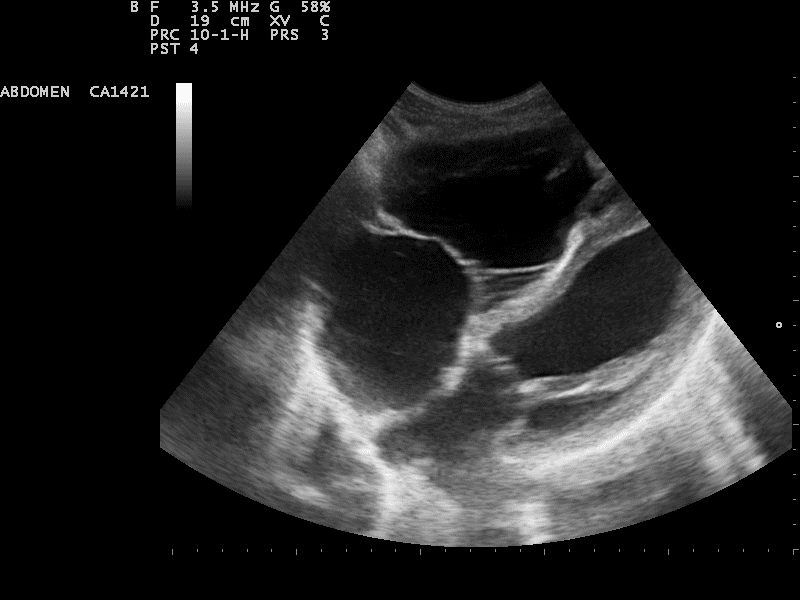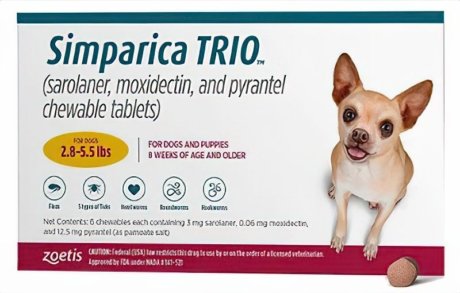Pancreatitis in Dogs | Causes, 6 Symptoms, Diagnosis, Treatment, Prevention, and FAQs
Pancreatitis in dogs is a complex and potentially life-threatening condition that affects their pancreas. The pancreas plays a critical role in digestion and regulating blood sugar levels in dogs. When this organ becomes inflamed, it can lead to various health problems. In this comprehensive guide, we will explore the causes, symptoms, diagnosis, treatment options, prevention measures, and frequently asked questions (FAQs) regarding pancreatitis in dogs.
Understanding the Pancreas
The pancreas is a vital organ located near the stomach and small intestine. It has two primary functions: producing digestive enzymes and regulating blood sugar levels through insulin secretion.
The pancreas is essentially a multifunctional organ, serving two crucial roles in your dog’s health:
- Digestive Enzyme Production: The pancreas produces enzymes like amylase, lipase, and protease, which are essential for breaking down food in the small intestine.
- Insulin Production: Another crucial function of the pancreas is to produce insulin, a hormone responsible for regulating blood sugar (glucose) levels. This ensures that your dog’s body can utilize glucose effectively for energy.
What Is Pancreatitis in Dogs?
Pancreatitis in dogs is a condition characterized by inflammation of the pancreas. This inflammation disrupts the normal functioning of the organ, leading to various health issues. There are two main forms of pancreatitis: acute and chronic.

Acute Pancreatitis
Acute pancreatitis is a sudden and severe form of the disease. It often presents with intense symptoms and requires immediate medical attention.
Acute pancreatitis can occur when digestive enzymes within the pancreas become prematurely activated, leading to self-digestion of the organ’s tissues. This process can result in severe pain and complications.
Chronic Pancreatitis In Dogs
Chronic pancreatitis is a long-term inflammation of the pancreas in dogs. Unlike acute pancreatitis, which occurs suddenly and severely, chronic pancreatitis develops over time. This condition can be challenging to manage, and it’s important to understand its causes, symptoms, and treatment options.
Causes:
- Dietary Factors: While the exact cause of chronic pancreatitis is often unknown, dietary factors can contribute. High-fat diets, table scraps, and consumption of inappropriate human foods can increase the risk.
- Obesity: Overweight dogs are more prone to pancreatitis. Reducing weight to a healthy level is often a part of managing chronic pancreatitis.
- Genetics: Certain breeds, such as Miniature Schnauzers, are more predisposed to pancreatitis.
- Medications: Some medications may be associated with pancreatitis.
Symptoms:
Chronic pancreatitis in dogs can present with various symptoms, including:
- Recurrent Vomiting: Dogs may vomit frequently, and the vomit might contain bile.
- Diarrhea: Chronic, often with a greasy appearance.
- Abdominal Pain: Dogs may show signs of discomfort or tenderness in the abdominal area.
- Lack of Appetite: Refusing to eat due to nausea and pain.
- Weight Loss: Chronic pancreatitis can lead to malabsorption of nutrients.
- Dehydration: Frequent vomiting and diarrhea can result in dehydration.
Diagnosis:
Diagnosing chronic pancreatitis involves a combination of clinical signs, blood tests, and imaging (like ultrasound or MRI). Your vet may perform specific tests to evaluate pancreatic function.
Treatment:
Treatment aims to manage symptoms and support pancreatic function. This may include:
- Dietary Changes: A low-fat, highly digestible diet can reduce stress on the pancreas. Special prescription diets are available.
- Medications: Pain management and enzyme supplements may be prescribed to help digestion.
- Fluid Therapy: To address dehydration and maintain electrolyte balance.
- Anti-nausea Medications: To control vomiting and encourage eating.
- Management of Underlying Issues: If obesity is a factor, weight loss will be essential.
- Regular Monitoring: Frequent check-ups and monitoring may be necessary to adjust treatment as needed.
- Avoiding Triggers: Prevent access to foods that can exacerbate the condition, such as high-fat table scraps.
What Causes Pancreatitis In Dogs
Pancreatitis can have several underlying causes, and understanding these factors is crucial for effective management and prevention. Let’s explore these causes in more detail:

Dietary Factors
Dietary factors play a significant role in the development of pancreatitis. Feeding high-fat foods, table scraps, or foods rich in unhealthy fats can trigger pancreatitis in susceptible dogs.
High-fat meals can stimulate the pancreas to release digestive enzymes, and if this process becomes uncontrolled, it can lead to inflammation and damage to the organ.
Obesity
Obesity is a significant risk factor for pancreatitis. Overweight dogs are more prone to developing the condition. Excess body fat can contribute to inflammation and increase the workload on the pancreas.
Obese dogs are also more likely to have higher levels of circulating fatty acids, which can further aggravate pancreatic inflammation.
Medications
Certain medications, including some antibiotics and corticosteroids, can increase the risk of pancreatitis in dogs. While these drugs may be necessary for treating other health issues, it’s essential to be aware of the potential side effects and consult your veterinarian about them.
These medications can disrupt the normal function of the pancreas and contribute to inflammation.
Genetics
Genetics can also play a role in pancreatitis. Some breeds, such as Miniature Schnauzers, Cocker Spaniels, and Yorkshire Terriers, have a genetic predisposition to the condition.
These breeds may have genetic mutations that make their pancreas more susceptible to inflammation. If you have a dog of one of these breeds, it’s essential to be vigilant about pancreatitis prevention.
Infections
While rare, infections can be a contributing factor in some cases of pancreatitis. Bacterial infections in the pancreas can lead to inflammation. These infections can occur due to the spread of bacteria from other parts of the body or as a result of underlying health conditions that compromise the immune system.
Infections can exacerbate pancreatitis symptoms and make the condition more challenging to manage.
What Foods Can Cause Pancreatitis In Dogs
Pancreatitis is a painful and potentially serious inflammation of the pancreas in dogs. While the exact causes of pancreatitis can be complex, certain foods are known to be associated with an increased risk of triggering this condition. It’s crucial to be aware of these foods and avoid feeding them to your dog. Here are some foods that can cause pancreatitis in dogs:
- Fatty Foods: High-fat foods, especially those from human meals, are a common trigger for pancreatitis. Avoid feeding your dog items like bacon, sausage, fried foods, and fatty cuts of meat.
- Grease and Oils: Excessive amounts of grease and cooking oils, whether from fatty foods or cooking methods, can be problematic. Greasy leftovers and pan drippings should not be given to your dog.
- Table Scraps: Feeding your dog table scraps can introduce a variety of fatty and potentially harmful foods. It’s best to limit or avoid feeding them any human food.
- Bones: While bones are sometimes given to dogs, cooked bones can splinter and cause injuries, including pancreatitis. Stick to safe, raw bones if you provide them.
- Human Snacks: Foods like potato chips, popcorn, and other salty or greasy snacks should not be shared with your dog.
- Dairy Products: Many dogs are lactose intolerant, and dairy products can upset their stomachs. Excessive dairy consumption can contribute to pancreatitis.
- Certain Meats: Highly processed or cured meats, such as sausages, hot dogs, and deli meats, contain preservatives and high levels of salt and fat, which can be problematic for dogs.
- Sugary Foods: While pancreatitis is more closely associated with high-fat foods, sugary treats can also disrupt your dog’s digestive system and contribute to the condition.
- Alcohol: Alcohol is toxic to dogs and can lead to pancreatitis, among other severe health issues. Keep alcohol well out of your pet’s reach.
- Grapes and Raisins: These seemingly harmless fruits can be toxic to dogs and may contribute to pancreatitis. Avoid feeding them to your dog entirely.
- Onions and Garlic: Onions and garlic, whether raw, cooked, or as ingredients in various dishes, contain compounds that can be toxic to dogs and potentially lead to pancreatitis.
What Toxins Cause Pancreatitis In Dogs
Pancreatitis in dogs is a painful and potentially serious inflammation of the pancreas. While the exact causes of pancreatitis can be multifactorial, there are certain toxins and substances that have been associated with an increased risk of triggering this condition. It’s important to be aware of these potential toxins and keep them out of your dog’s reach. Here are some toxins that can cause pancreatitis in dogs:

- Fatty Foods: High-fat foods, especially those from human meals, can increase the risk of pancreatitis. Foods like bacon, sausage, fried foods, and fatty cuts of meat should not be given to dogs.
- Alcohol: Alcohol is toxic to dogs and can cause various health problems, including pancreatitis. Keep alcoholic beverages away from your dog.
- Certain Medications: Some medications, including specific antibiotics and chemotherapeutic drugs, may be associated with an increased risk of pancreatitis. Always administer medications to your dog as directed by your veterinarian.
- Organophosphates: Certain pesticides and insecticides, such as those containing organophosphates, can be toxic to dogs and may contribute to pancreatitis if ingested.
- Choline Chloride: This compound is found in some garden and lawn fertilizers and can be toxic to dogs. Ingestion may lead to pancreatitis among other health concerns.
- Vitamins and Supplements: Some vitamins and supplements, particularly those with high levels of fat-soluble vitamins (A, D, E, and K), can be problematic if consumed in excess and might contribute to pancreatitis.
- Grass Clippings Treated with Pesticides: Ingesting grass clippings treated with pesticides or herbicides can be harmful and potentially lead to pancreatitis.
- Onions and Garlic: These common kitchen ingredients, whether raw, cooked, or as ingredients in various dishes, contain compounds that can be toxic to dogs and potentially cause pancreatitis.
- Grapes and Raisins: Grapes and raisins can be toxic to dogs and may lead to pancreatitis and other serious health issues. Even small amounts should be avoided.
- Xylitol: This artificial sweetener is toxic to dogs and can cause a range of health problems, including pancreatitis. It’s often found in sugar-free gum and some sugar-free human foods.
To protect your dog from potential pancreatitis-causing toxins, it’s important to ensure that your home and surroundings are dog-proofed. Keep all hazardous substances out of reach and be cautious about what your dog may find or scavenge during walks and outdoor activities. If you suspect that your dog has ingested a toxic substance or if you notice symptoms of pancreatitis, such as vomiting, diarrhea, abdominal pain, or a lack of appetite, seek immediate veterinary care. Early intervention is crucial in managing this condition effectively. Always consult with your veterinarian for guidance on keeping your dog safe and healthy.
Recognizing the Symptoms of Pancreatitis in Dogs
Recognizing the symptoms of pancreatitis is crucial for early intervention. Dogs with pancreatitis may exhibit a range of clinical signs, including:
Vomiting
Vomiting is a common symptom of pancreatitis and often occurs suddenly and repeatedly. The vomiting can be severe and may contain bile or partially digested food.
The reason behind vomiting in pancreatitis is the disruption of normal digestive enzyme release and the resulting irritation of the stomach lining.
Diarrhea
Diarrhea may accompany vomiting and can range from mild to severe. It may be watery and contain mucus or blood in severe cases.
Diarrhea occurs because the inflammation in the pancreas can disrupt the normal digestive process, leading to malabsorption of nutrients and changes in stool consistency.
Abdominal Pain
Dogs with pancreatitis may experience abdominal pain, which can manifest as restlessness or discomfort. They may adopt a “praying position” with their front end lowered and their rear end raised.
This posture is a response to the abdominal discomfort and helps alleviate pressure on the pancreas.
Loss of Appetite
A decreased appetite is a common sign of pancreatitis, and affected dogs may refuse to eat. The combination of abdominal pain and nausea can make eating unappealing.
In severe cases, dogs may go off food completely, leading to significant weight loss.
Lethargy
Lethargy, or extreme tiredness, is another frequent symptom of pancreatitis. Dogs with pancreatitis often lack their usual energy and may seem more lethargic than usual.
This fatigue is partly due to the body redirecting energy and resources towards healing and recovery.
Fever
In some cases, dogs with pancreatitis may develop a fever. Fever is the body’s natural response to inflammation and infection.
A fever is a sign that the immune system is working to combat the inflammation in the pancreas. However, it can also contribute to further discomfort.
Dehydration
Dehydration can occur due to vomiting and diarrhea, and it’s essential to address it promptly. Dehydration can worsen the clinical signs of pancreatitis and lead to electrolyte imbalances.
If your dog shows signs of dehydration, such as dry gums, sunken eyes, or increased thirst, it’s crucial to seek veterinary care.
These symptoms collectively create a picture of pancreatitis, and their severity can vary from mild to severe. In acute cases, the symptoms may appear suddenly and be very distressing for both the dog and the owner.
Pancreatic Cancer in Dogs:
Pancreatic cancer in dogs, while relatively rare compared to other health issues, can be a serious and life-threatening condition. It occurs when malignant (cancerous) cells develop in the tissues of the pancreas. The pancreas plays a crucial role in digestion and blood sugar regulation. Here’s an overview of pancreatic cancer in dogs:
Causes and Risk Factors of Pancreatic Cancer in Dogs:
The exact causes of pancreatic cancer in dogs are not well understood, but there are some risk factors that may increase the likelihood of this condition, including:
- Age: Pancreatic cancer is more common in older dogs.
- Breed: Certain breeds may have a higher predisposition to this type of cancer.
- Diet: While there is no direct dietary link, providing a balanced and appropriate diet for your dog’s overall health is essential.
- Genetics: Genetic factors may play a role in some cases.
Symptoms of Pancreatic Cancer in Dogs:
The symptoms of pancreatic cancer in dogs can vary but may include:
- Lethargy: Dogs with pancreatic cancer may become increasingly tired and inactive.
- Loss of Appetite: A reduced interest in food, leading to weight loss, can be a common symptom.
- Vomiting: Dogs may experience repeated vomiting.
- Diarrhea: Persistent diarrhea, sometimes with a particularly foul odor, can occur.
- Abdominal Pain: Dogs may show signs of discomfort in the abdominal area.
- Jaundice: Yellowing of the skin, eyes, and gums can be a sign of pancreatic cancer, as it may affect the liver.
- Change in Stool: Pale, greasy, or clay-colored stools can be associated with pancreatic problems.
- Weakness: A general sense of weakness and malaise may be observed.
- Increased Thirst and Urination: Excessive thirst and urination can result from disruptions in blood sugar regulation.
Diagnosis and Veterinary Consultation of Pancreatitis in Dogs
If you suspect your dog has pancreatitis, seeking veterinary care is crucial. Your veterinarian will conduct a thorough evaluation, including:

Physical Examination
A physical examination allows the veterinarian to assess your dog’s overall condition and identify signs of discomfort or pain. They may palpate the abdomen to check for tenderness or swelling.
During the examination, your veterinarian will also inquire about your dog’s medical history, including any recent changes in diet or medication.
Blood Tests
Blood tests, such as serum amylase and lipase levels, can help diagnose pancreatitis. Elevated levels of these enzymes can indicate inflammation. However, it’s important to note that high enzyme levels alone may not definitively diagnose pancreatitis, as they can also occur in other conditions.
Additionally, blood tests can assess other parameters like liver function, kidney function, and blood glucose levels, providing valuable information about your dog’s overall health.
Imaging
Imaging techniques like ultrasound or radiography can provide visual confirmation of pancreatitis and assess its severity. These tests allow veterinarians to visualize the pancreas and look for characteristic changes associated with inflammation.
Ultrasound, in particular, is often used because it provides detailed images of the pancreas and surrounding structures.
Pancreatic Biopsy
In some cases, a pancreatic biopsy may be necessary to confirm the diagnosis definitively. Biopsies involve taking a small tissue sample from the pancreas for examination.
Biopsies are typically performed in cases where the diagnosis remains uncertain despite other diagnostic tests or when additional information is needed to guide treatment.
Pancreatitis In Dogs Treatment
Treatment for pancreatitis in dogs aims to alleviate symptoms, manage complications, and support the healing process. Common treatment options include:
Medications
Medications are often prescribed to manage symptoms, including pain relief and anti-nausea drugs. Managing pain is crucial, as pancreatitis can be exceptionally painful for dogs.
Commonly prescribed medications may include opioids, non-steroidal anti-inflammatory drugs (NSAIDs), or other pain relief medications.
Dietary Changes
Switching to a low-fat diet is crucial for managing pancreatitis. Special prescription diets are available for dogs with pancreatitis. These diets are formulated to be easily digestible and gentle on the pancreas.
Low-fat diets help reduce the stimulation of the pancreas and decrease the production of digestive enzymes.
Fluid Therapy
Fluid therapy is essential to combat dehydration, correct electrolyte imbalances, and support overall recovery. Dogs with pancreatitis are often prone to dehydration due to vomiting and diarrhea, and maintaining proper hydration is vital for their well-being.
Fluids may be administered intravenously (IV) or subcutaneously (under the skin) to ensure your dog remains adequately hydrated.
Enzyme Replacement Therapy
In cases of chronic pancreatitis or severe pancreatic insufficiency, enzyme replacement therapy may be recommended to aid in digestion. This therapy involves supplementing your dog’s diet with pancreatic enzymes to help break down food properly.
Enzyme replacement therapy can improve nutrient absorption and alleviate digestive discomfort.
Pancreatitis In Dogs Treatment At Home
Caring for a dog with pancreatitis at home involves various considerations and practices to promote recovery and prevent relapses. Here are some essential aspects of home care:
Feeding Small, Frequent Meals
Feeding smaller, more frequent meals can reduce the workload on the pancreas and prevent overstimulation. Smaller meals are easier for the inflamed pancreas to handle.
Dividing your dog’s daily food intake into several small portions can help maintain adequate nutrition while minimizing the risk of digestive distress.
Low-Fat Diet
Maintaining a low-fat diet is critical for dogs with pancreatitis. Consult your veterinarian for suitable dietary recommendations. Commercial low-fat diets designed for dogs with pancreatitis are available, but homemade diets can also be formulated under veterinary guidance.
When preparing homemade meals, it’s essential to avoid high-fat ingredients and focus on lean protein sources and complex carbohydrates.
Medication Administration
Administering prescribed medications as directed by your veterinarian is crucial for managing symptoms and supporting your dog’s recovery. Make sure to follow the recommended dosages and administration schedules meticulously.
Signs of Worsening Pancreatitis in Dogs:
Pancreatitis in dogs can vary in severity, and it’s important to be vigilant for signs of worsening pancreatitis, as this could indicate a more serious condition or complications. Here are some signs to watch for:
- Severe Abdominal Pain: An increase in abdominal pain or discomfort may indicate a worsening of pancreatitis. Dogs may show signs of restlessness, pacing, or even guarding their abdomen.
- Vomiting: Repeated or severe vomiting can be a sign of worsening pancreatitis. If the vomit contains blood or appears particularly distressing, it’s a cause for concern.
- Diarrhea: Persistent and severe diarrhea can suggest worsening pancreatic inflammation.
- Dehydration: Signs of dehydration, such as sunken eyes, dry gums, or excessive thirst, can indicate a more severe condition.
- Lethargy: A significant increase in lethargy, weakness, or unresponsiveness may be a sign that your dog’s condition is worsening.
- Loss of Appetite: Refusal to eat or a significant reduction in food intake can be concerning.
- Jaundice: Yellowing of the skin, eyes, or gums is indicative of liver involvement, which can occur with severe pancreatitis.
- Shock: In severe cases, dogs may go into shock, which can result in a drop in body temperature, rapid heartbeat, and pale gums.
If you observe any of these signs in your dog, it’s crucial to seek immediate veterinary care. Worsening pancreatitis can be life-threatening, and early intervention is essential for a better outcome.
Exocrine Pancreatic Insufficiency (EPI) in Dogs:
Exocrine Pancreatic Insufficiency (EPI) is a condition in which the pancreas doesn’t produce enough digestive enzymes, leading to poor nutrient absorption. Signs of EPI in dogs include:
- Chronic Diarrhea: Frequent, foul-smelling, and often voluminous diarrhea is a hallmark sign of EPI.
- Weight Loss: Despite eating a normal or increased amount of food, dogs with EPI continue to lose weight.
- Increased Appetite: Dogs with EPI may seem ravenous, as their bodies try to compensate for nutrient malabsorption.
- Poor Coat Condition: A dull, dry, and unhealthy-looking coat may be evident.
- Excessive Gas: Dogs with EPI often have flatulence due to undigested food fermenting in the intestines.
EPI is a treatable condition. Treatment typically involves supplementing the dog’s diet with pancreatic enzyme replacements and providing appropriate nutrition to manage the condition effectively.
Metronidazole for Pancreatitis in Dogs:
Metronidazole is an antibiotic that is sometimes prescribed for dogs with pancreatitis. While it’s primarily used to treat infections, it can also help manage the symptoms of pancreatitis, especially if there is evidence of secondary bacterial infection in the gastrointestinal tract.
The use of metronidazole in pancreatitis is typically determined by a veterinarian. It’s essential to follow their recommendations regarding dosage and duration, as well as any potential side effects or interactions with other medications your dog may be taking.
Metronidazole should not be used without veterinary guidance, as it’s crucial to address the underlying cause of pancreatitis and ensure appropriate treatment for your dog’s specific condition. Always consult with your veterinarian to determine the most suitable approach to managing pancreatitis in your dog.
The Importance of Nutrition of Pancreatitis in Dogs
Nutrition plays a pivotal role in managing pancreatitis and preventing flare-ups. Let’s delve deeper into the significance of nutrition in pancreatitis care:
Nutritional Supplements
Some dogs with pancreatitis may benefit from nutritional supplements such as digestive enzymes or probiotics. These supplements can help support digestion and maintain gut health.
Digestive enzymes aid in the breakdown of nutrients, while probiotics introduce beneficial bacteria to the digestive tract, promoting a healthy balance of microorganisms.
Homemade vs. Commercial Diets
Discuss with your veterinarian whether a commercial or homemade diet is more suitable for your dog’s specific needs. Both options can be viable, provided they meet the necessary criteria for low fat and balanced nutrition.
Homemade diets should be formulated under veterinary guidance to ensure they meet your dog’s nutritional requirements.
Preventing Pancreatitis in Dogs
Preventing pancreatitis is essential for the long-term health and well-being of your dog. Here are practical steps to reduce the risk:

Proper Diet
Feed your dog a balanced and nutritionally appropriate diet. Consult your veterinarian for dietary recommendations tailored to your dog’s needs. Be vigilant about the fat content in your dog’s food, and avoid high-fat ingredients or table scraps.
Low-fat diets or specially formulated pancreatitis diets may be recommended for dogs with a history of pancreatitis.
Exercise
Regular exercise is crucial for maintaining a healthy weight and overall well-being. Engage in activities that suit your dog’s breed and age, and be consistent with exercise routines.
Exercise helps prevent obesity, which is a significant risk factor for pancreatitis. Ensure that your dog receives daily opportunities for physical activity.
Avoiding High-Fat Foods
Steer clear of high-fat foods and table scraps, as they can trigger pancreatitis in susceptible dogs. These include fatty meats, fried foods, and foods high in butter or oil.
Educate family members and caregivers about the importance of not feeding your dog high-fat treats or leftovers.
Stress Management
Stress can exacerbate health conditions, including pancreatitis. Create a stress-free environment for your dog by minimizing loud noises, providing a safe and comfortable space, and maintaining a predictable routine.
Stress management is particularly crucial for dogs with a history of pancreatitis, as stress can contribute to flare-ups.
Regular Check-ups
Routine veterinary check-ups can help monitor your dog’s overall health and detect potential issues early. Regular blood tests and physical examinations can assess your dog’s pancreas function and identify any signs of pancreatitis.
Your veterinarian may also recommend periodic ultrasound examinations to check for changes in the pancreas.
Pancreatitis and Breed Predisposition
Some dog breeds are more genetically predisposed to pancreatitis than others. Let’s explore these breed-specific tendencies in more detail:
Miniature Schnauzers
Miniature Schnauzers are known to have a higher risk of pancreatitis, making careful dietary management crucial for this breed. Their genetic predisposition to the condition means they require special attention to their fat intake.
Owners of Miniature Schnauzers should work closely with their veterinarians to develop a suitable dietary plan.
Cocker Spaniels
Cocker Spaniels are another breed with a genetic predisposition to pancreatitis. Owners should be vigilant about their diet, ensuring it remains low in fat.
Regular monitoring and preventive measures are particularly important for Cocker Spaniels.
Yorkshire Terriers
Yorkshire Terriers may also be prone to pancreatitis, underscoring the importance of preventive measures. These small dogs should be fed a balanced diet appropriate for their size and activity level.
Owners of Yorkshire Terriers should consult their veterinarians for dietary guidance tailored to their specific needs.
The Role of Age in Pancreatitis
Pancreatitis can affect dogs of all ages, but its presentation and management may vary depending on their life stage. Let’s explore how age plays a role:
Pancreatitis in Puppies
Pancreatitis in puppies is rare but can occur. Puppies are generally more resilient than older dogs, but pancreatitis can still be a serious concern.
If you suspect pancreatitis in a puppy, seek prompt veterinary care to ensure a swift and accurate diagnosis.
Pancreatitis in Adult Dogs
Adult dogs are more commonly affected by pancreatitis, and the condition can have various outcomes depending on its severity. Adult dogs often present with acute or chronic pancreatitis, and treatment options vary accordingly.
Acute pancreatitis in adult dogs requires immediate medical attention and intensive care, while chronic pancreatitis may necessitate ongoing management.
Pancreatitis in Senior Dogs
Senior dogs may be more vulnerable to complications associated with pancreatitis, such as diabetes mellitus. Age-related changes in organ function and immune system response can complicate the course of the disease.
Owners of senior dogs should work closely with their veterinarians to manage and monitor pancreatitis effectively.
Complications Associated with Pancreatitis
Pancreatitis can lead to several complications that require specialized attention. It’s essential to be aware of these potential issues:
Diabetes Mellitus
Pancreatitis can damage the pancreas’s ability to produce insulin, leading to diabetes mellitus. When the pancreas is inflamed, it may not produce enough insulin, resulting in elevated blood sugar levels.
Diabetes mellitus requires lifelong management with insulin therapy and dietary modifications.
Pancreatic Abscess
In severe cases, pancreatitis can lead to the formation of a pancreatic abscess, which requires surgical intervention. An abscess is a localized collection of infected or inflamed tissue within the pancreas.
Pancreatic abscesses can be life-threatening and often necessitate immediate surgery to drain the infection and remove damaged tissue.
Pancreatic Insufficiency
Chronic pancreatitis may result in pancreatic insufficiency, affecting nutrient absorption and digestion. The damaged pancreas may not produce enough digestive enzymes to break down food properly.
Pancreatic insufficiency leads to malnutrition, weight loss, and nutrient deficiencies. It requires lifelong management with enzyme replacement therapy and dietary adjustments.
Pancreatitis vs. Other Digestive Disorders
Distinguishing between pancreatitis and other digestive disorders is crucial for accurate diagnosis and treatment. Let’s compare pancreatitis to some common digestive issues:
Inflammatory Bowel Disease
Inflammatory bowel disease (IBD) is a separate condition characterized by chronic inflammation of the digestive tract. While it shares some symptoms with pancreatitis, IBD primarily affects the gastrointestinal lining.
IBD often requires long-term management with medications and dietary modifications.
Gastritis
Gastritis involves inflammation of the stomach lining and may present with symptoms similar to pancreatitis, such as vomiting and abdominal pain. However, gastritis specifically affects the stomach, whereas pancreatitis involves the pancreas.
Gastritis can result from various causes, including dietary indiscretion or infections.
Gastrointestinal Foreign Bodies
Ingested foreign objects can cause gastrointestinal distress, but they differ from pancreatitis in terms of causation and treatment. Foreign bodies can obstruct the digestive tract, leading to symptoms like vomiting, abdominal pain, and even more severe complications.
Diagnosis often involves imaging studies to locate and remove the foreign object surgically or endoscopically.
Emotional Well-Being of Dogs with Pancreatitis
Caring for the emotional well-being of dogs with pancreatitis is as crucial as addressing their physical health. Dogs with pancreatitis can experience stress and discomfort, and supportive measures can make their recovery more comfortable. Here’s how you can support your dog emotionally:
Recognizing Stress in Dogs
Learn to recognize signs of stress and anxiety in your dog, such as pacing, whining, or changes in behavior. Stress can exacerbate physical symptoms, so it’s essential to address it promptly.
Common signs of stress include panting, trembling, hiding, excessive barking, or aggression.
Creating a Comfortable Environment
Provide a calm and comfortable environment for your dog to recover. Ensure they have a quiet, safe space to rest, away from noisy or high-traffic areas of the house.
Consider providing soft bedding and familiar toys to comfort your dog during their recuperation.
Canine Enrichment
Engage your dog in mental and physical stimulation activities to keep their spirits up during recovery. Puzzle toys, treat-dispensing toys, and gentle play can help keep their minds engaged.
Be mindful of their energy levels and choose activities that align with their current condition.
Supportive Therapy
Consider supportive therapies such as acupuncture or massage to alleviate stress and discomfort. These therapies can also promote relaxation and improve blood flow.
Discuss these options with your veterinarian to ensure they are safe and appropriate for your dog.
Pancreatitis In Dogs Diet (What to Feed your Dog)
Pancreatitis in dogs is a condition characterized by inflammation of the pancreas, which can be painful and potentially serious. Dietary management plays a crucial role in the treatment and prevention of recurrent pancreatitis. Here are some key considerations for a pancreatitis-friendly diet for dogs:
- Low-Fat Diet: The cornerstone of managing pancreatitis in dogs is feeding a low-fat diet. Reducing dietary fat helps ease the strain on the pancreas, as it doesn’t have to produce as many digestive enzymes. Commercial prescription low-fat dog foods are available, but it’s essential to check the fat content on the label, aiming for less than 10% fat.
- High-Quality Protein: Focus on high-quality protein sources. Lean meats, such as chicken or turkey, and low-fat cottage cheese can be suitable options. Protein is still essential for maintaining your dog’s overall health and well-being.
- Fiber: Soluble fiber can help regulate digestion and improve stool quality. Some commercial low-fat dog foods contain added fiber, or you can incorporate fiber sources like plain canned pumpkin or boiled rice.
- Avoid High-Fat Foods: Steer clear of foods known to be high in fat, such as fatty cuts of meat, bacon, sausage, and certain dairy products.
- Small, Frequent Meals: Feeding several small meals throughout the day instead of one or two large meals can help reduce the load on the pancreas and aid in digestion.
- Hydration: Ensure your dog has access to clean, fresh water at all times. Staying well-hydrated is essential for overall health and can help prevent complications of pancreatitis.
- Prescription Diets: Your veterinarian may recommend prescription diets formulated specifically for dogs with pancreatitis. These diets are carefully balanced to meet your dog’s nutritional needs while keeping fat content low.
- Treats and Table Scraps: It’s crucial to avoid giving treats and table scraps that are high in fat. Instead, look for low-fat dog treats designed for dogs with sensitive stomachs.
- Supplements: Your veterinarian may recommend specific supplements, such as digestive enzymes or probiotics, to aid digestion and nutrient absorption.
- Consult Your Veterinarian: The dietary needs of dogs with pancreatitis can vary, and it’s essential to work closely with your veterinarian. They can provide specific dietary recommendations tailored to your dog’s condition and monitor their progress.
Conclusion:
In conclusion, pancreatitis in dogs is a complex condition that requires careful management and preventive measures. By understanding its causes, symptoms, diagnosis, treatment options, and complications, you can provide the best possible care for your furry friend.
Frequently Asked Questions:
-
Can pancreatitis be cured in dogs?
While there is no definitive cure for pancreatitis, with proper management and preventive measures, dogs with pancreatitis can lead a healthy and comfortable life. The goal is to control symptoms, prevent flare-ups, and improve overall well-being.
-
What should I feed my dog with pancreatitis?
Feeding a low-fat diet is essential for dogs with pancreatitis. Your veterinarian can recommend commercial low-fat diets designed for pancreatitis or help you formulate a homemade diet that meets your dog’s nutritional requirements while keeping fat content minimal.
-
Is pancreatitis painful for dogs?
Pancreatitis can indeed cause significant pain in dogs. The inflammation of the pancreas and surrounding tissues can lead to abdominal discomfort and distress. Veterinarians often prescribe pain relief medications to ensure the dog’s comfort during the healing process.
-
Can I prevent pancreatitis in my dog?
Preventing pancreatitis involves several key steps, including feeding a low-fat diet, maintaining a healthy weight through regular exercise, avoiding high-fat foods and table scraps, and creating a stress-free environment for your dog. These preventive measures can significantly reduce the risk of pancreatitis.
-
Is pancreatitis contagious between dogs?
Pancreatitis is not a contagious condition. It is primarily caused by factors such as diet, genetics, and underlying health conditions. Dogs with pancreatitis do not pose a risk of transmitting the condition to other dogs through contact or close proximity.
-
Can pancreatitis lead to other health problems?
Pancreatitis can have significant consequences for a dog’s health. It can lead to complications like diabetes mellitus due to damage to the pancreas’s ability to produce insulin. In severe cases, it may result in the formation of a pancreatic abscess, requiring surgical intervention. Chronic pancreatitis can also lead to pancreatic insufficiency, affecting nutrient absorption and digestion.
-
What is the prognosis for dogs with pancreatitis?
The prognosis for dogs with pancreatitis depends on several factors, including the severity of the condition, the dog’s overall health, and the timeliness of treatment. With prompt diagnosis and appropriate treatment, many dogs with pancreatitis can recover and lead fulfilling lives. However, severe or recurrent cases may have a less favorable prognosis.
-
Are there alternative therapies for managing pancreatitis in dogs?
Alternative therapies, such as acupuncture or herbal remedies, are options that some dog owners consider for managing pancreatitis. However, it’s crucial to consult with a veterinarian before implementing any alternative treatments. Veterinarians can provide guidance on the safety and effectiveness of these therapies and ensure they complement conventional treatments.
-
Can pancreatitis recur in dogs after treatment?
Yes, pancreatitis can recur, especially if preventive measures are not followed. Regular veterinary check-ups and adherence to dietary recommendations are essential for preventing relapses.
-
What are the long-term effects of pancreatitis in dogs?
The long-term effects of pancreatitis in dogs can vary depending on the severity of the condition and how well it is managed. Chronic pancreatitis can lead to ongoing digestive issues, while severe acute pancreatitis can result in complications like diabetes mellitus or pancreatic insufficiency. Proper management and preventive measures are key to minimizing long-term effects.
Recommended:
Rimadyl : A Comprehensive Guide to Canine Pain Relief
Cerenia For Dogs: A Comprehensive Guide to Managing Canine Nausea





























